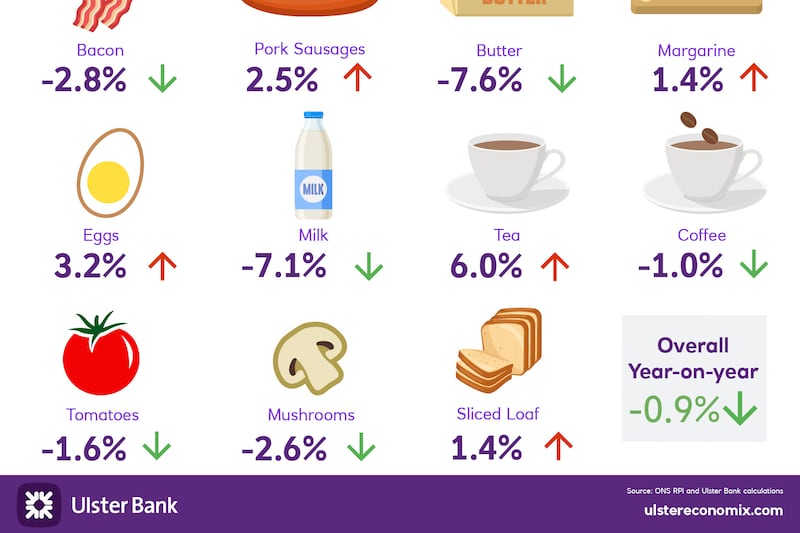IN something of a rarity, Northern Ireland's economic performance in the private sector actually out-stripped most of the UK in February, according to data from Ulster Bank.
Despite the seemingly Armageddon scenario of job losses across many sectors, notably manufacturing, new orders across the board rose at their sharpest level in eight months, the bank's monthly PMI report reveals.
It also points to the fact that higher workloads have led to companies increasing their staffing levels for the 13th successive month.
But despite Northern Ireland maintaining its solid start to the year, with both activity and new business rising at similar rates to seen in January, the data wasn't all positive, with output, new orders and staffing levels all declining in the manufacturing sector.
Still, Ulster Bank's northern chief economist Richard Ramsey's assessment of the barometer's findings was bullish and upbeat.
He said “Global economic conditions deteriorated last month, with PMI surveys from the US and UK showing significant slowdowns in economic activity, and indeed in the UK the pace of growth in business activity slowed to its weakest level in almost three years.
“Yet at a regional level, Northern Ireland fared comparatively better than almost every other UK region. Firms here reported a slight moderation in the pace of growth in output relative to January’s 16-month high.
"However, unlike the UK, the rate of growth was still broadly in line with the long-term average that pre-dated the downturn. The slowdown in the rate of job creation was more marked but remained above the pre-downturn longer-term average."
He added: “Encouragingly, Northern Ireland’s private sector reported a pick-up in new orders growth, with new business rising in February at its fastest rate in eight months, comparing favourably to the UK’s growth rate.
"Rising demand from the Republic helped growth in export orders, which isn't surprising given the recent bout of sterling weakness against the euro. A weaker currency is one factor leading to higher input cost inflation.
"However, the primary driver behind rising input costs is higher wages."
According to the PMI, Northern Ireland’s manufacturing sector is enduring more difficult conditions than its counterparts in Britain. However, the service sector is outperforming its UK equivalent and activity accelerated to a 19-month high in February.
Construction firms are also still reporting growth in output, new orders and employment, albeit the bulk of this activity remains in Britain, while retailers continue to enjoy favourable conditions and the fastest rate of employment growth of all sectors.
Ramsey said: “It should be remembered however that while Northern Ireland is currently enjoying stronger rates of growth than the UK as a whole, this is from a lower base and is at least in part due to us playing catch-up.
"Our recovery until now has been slower and is therefore at a less advanced stage. Whether the current strong rates of growth can be sustained remains to be seen, with a number of factors creating uncertainty on the horizon.”






